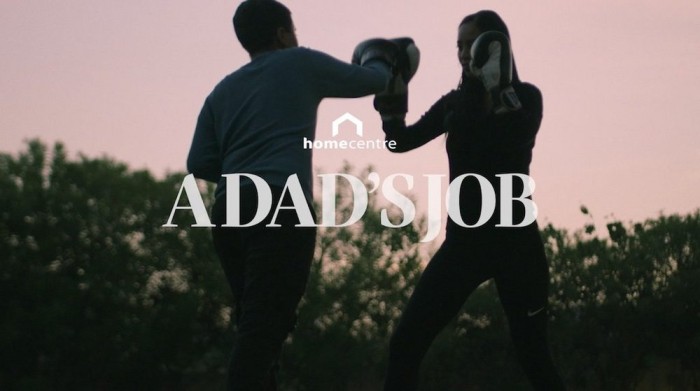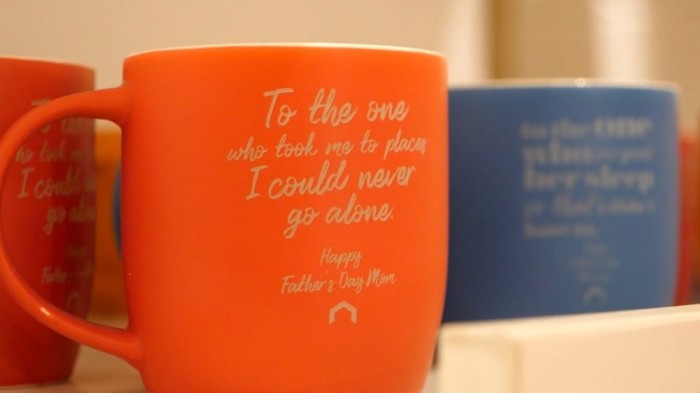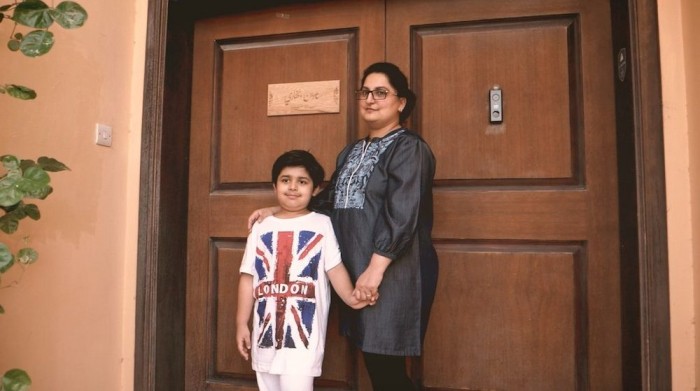Case study | Home Centre: A Dad's Job
UAE home retailer challenges cultural taboo by being first brand in the country to celebrate single mums in ads
This article was originally published in Contagious I/O on 2 May 2021
Share this post
To challenge a cultural taboo and build up emotional connections with its primary customer base, home retailer Home Centre put single mothers at the heart of its advertising.
In the Middle East, 15% of families have a single mum – but despite the significant number, their social status is tarnished as it’s believed that a man only leaves if a woman has failed to be a good wife. As a result, single mums are almost never portrayed in advertising.
With Arab mums holding 80% of purchasing power for Home Centre, the brand, working with McCann in Dubai, set out to really connect with this customer base and change perceptions too.

On Father’s Day, the brand released a film online, titled A Dad’s Job, showing real children paying tributes to a parent – with it revealed at the end that the kids were talking to their single mothers.
Taking on this taboo sparked a swift online backlash – 50% of comments were negative, ranging from Home Centre being seen as ‘supporting women being adulterous’, to the retailer ‘encouraging women to divorce their husbands’.

However, Home Centre fully expected this reaction and the backlash had the result the brand hoped for: social media, such as Twitter, that would normally be filled with messages about Father’s Day, was full of content featuring single Arab mums.
Following the online video, influencers, single mums and women leaders supported the initiative on social media, sharing the statement: ‘I Stand For Single Moms’. The brand then seeded these supportive videos and the campaign film on regional news and talk shows in an effort to drive credibility for Home Centre’s message.
In addition, Home Centre worked with leading online image banks to change algorithms so that search terms relating to family or fathers showed images of single mothers with their children. Videos were also shared online titled ‘How to Mom & Dad’, which featured single mums doing things Arab dads typically do, such as replacing car tyres, building a barbecue and fixing a bike.

There were also product-led initiatives to support the campaign. Home Centre released bespoke door plaques that could be bought online. Normally in the Middle East, door-fronts have plates which show the father’s family name. To challenge that, Home Centre created customisable plaques that families could design to reflect the mother’s name.
Children were also invited to share tributes to their mums and a select few were transcribed onto gifts that could be bought in-store and online. Proceeds from those gifts went to charities that support single mothers in the region.
The campaign started on Father’s Day in July 2020 and ran until February 2021, it is still live in-store.
Results / According to the agency, during the first three months of the campaign it achieved 1.1 billion earned media impressions, $3.7m in earned media, 102 million cross-platform organic views and reached 63% of the region. Home Centre also tracked public sentiment and saw a 512% uplift in conversations around Arab single mums and an increase of 86% in positive sentiment around the topic after three months. Finally, when comparing the business from Arab mothers three months prior to the campaign to three months after, the brand saw an uplift of 190% in footfall (online and in-store), 170% increase in the amount purchased and 120% bump in revenue.
Contagious Insight
Be the lightning rod / There was a lot of negative sentiment attached to this campaign that could have been detrimental to its effectiveness, but the brand was able to use that controversy to its advantage. By sparking the conversation, Home Centre could sit in the middle of the debate and benefit from the consequent publicity, good and bad. Reactions to this campaign echo conversations that happened when Nike chose to champion Colin Kaepernick in 2018. When the sports brand used the divisive athlete in a Super Bowl ad, it provided a channel through which people online could react to the mounting emotion that society had concerning police brutality. However angry or supportive people were, Nike was at the centre of it all. A Dad’s Job provides a similar ‘lightning rod’ for the conversation surrounding the cultural taboo of single mothers in Dubai. And whether it’s positive or negative emotion being expressed, the brand is right at the heart of the conversation.
Protect your people / Home Centre has acutely understood the fact that mothers make up the majority of its core demographic and that it therefore makes sense for the brand to understand, appeal to, and champion this group. By making such a tangible impact on these women’s lives, this campaign ensures Arab mums will view the brand as an ally and build up long-lasting emotional connections. So often we see brands raise awareness for an issue or amplify a movement’s message, but it’s not often we see a campaign instigate a change in social sentiment. In an interview with Contagious magazine, author and marketing expert Seth Godin stressed the importance of being generous in advertising and brands leaving consumers better off than when they found them. ‘The generosity is not: “Did [brands] give stuff away?”’ Godin explained. ‘The generosity is: “Did they show up in a way that left the people happier than if they hadn’t shown up?”’ A Dad’s Job shows Home Centre to be an agent of social change and a brand that acts generously on behalf of its primary consumer base.


